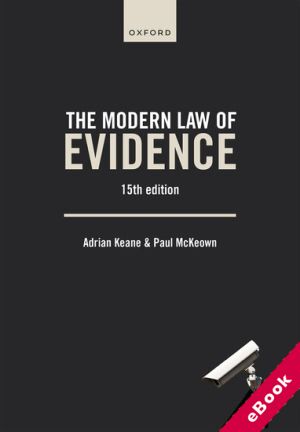
The device(s) you use to access the eBook content must be authorized with an Adobe ID before you download the product otherwise it will fail to register correctly.
For further information see https://www.wildy.com/ebook-formats
Once the order is confirmed an automated e-mail will be sent to you to allow you to download the eBook.
All eBooks are supplied firm sale and cannot be returned. If you believe there is a fault with your eBook then contact us on ebooks@wildy.com and we will help in resolving the issue. This does not affect your statutory rights.
The best-selling evidence textbook: clear, direct, and complete. The Modern Law of Evidence is an engaging and authoritative guide that provides concise and focused analysis of the theory behind the law as well as its practical application, with an emphasis on current debates.
Key Features:
New to this edition:
Digital formats and resources:
The fifteenth edition is available for students and institutions to purchase in a variety of formats, including on Law Trove. The e-book offers a mobile experience and convenient access along with functionality tools, navigation features, and links that offer extra learning support.